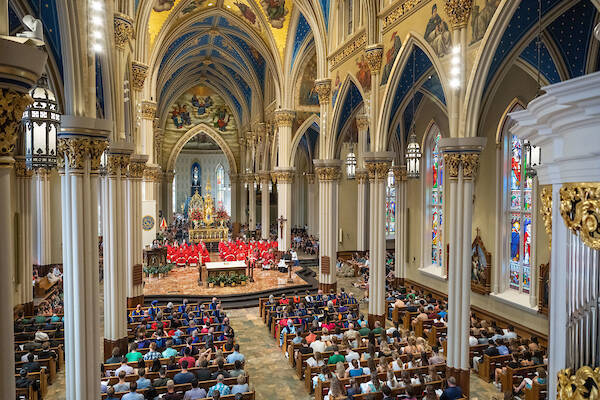Gold Mass and Lecture
Gold Mass and Lecture

In a 1988 letter to the Rev. George V. Coyne, S.J., director of the Vatican Observatory, His Holiness John Paul II wrote, “Science can purify religion from error and superstition; religion can purify science from idolatry and false absolutes. Each can draw the other into a wider world, a world in which both can flourish.” This planted the seed for the founding of the Society of Catholic Scientists and the first ever Gold Mass.
The Gold Mass, which follows in the tradition of special Masses for members of different professions, was selected because gold is the color of the hoods worn by individuals graduating with a Ph.D. in science. It is also the color associated with the patron saint of scientists St. Albert the Great.
The oldest Mass for professions, the Red Mass for lawyers and lawmakers was begun in the 13th century. The first White Mass for health care professionals and Blue Mass for law enforcement were introduced in the 1930s. The first Gold Mass for scientists and engineers was held at the Massachusetts Institute of Technology on Nov. 15, 2016.
Notre Dame is continuing the tradition of celebrating the Gold Mass on St. Albert's feast day.